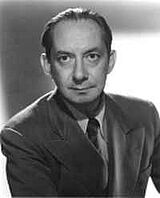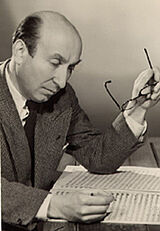The 1920s heralded a ‘Golden-Age’ of German cabaret (Kabarett), with clubs such as Max Reinhardt’s Schall und Rauch (Sound and Smoke) and Trude Hesterberg’s Wilde Bühne (Wild Stage) in Berlin, and Die Elf Scharfrichter (Eleven Executioners) in Munich offering hedonistic, avant-garde, risqué entertainment. German cabaret was celebrated for its political satire, which put cabaret artists at risk after 1933 when the Nazis suppressed any form of political criticism.
Jewish composers, who dominated the cabaret scene, were particularly at risk, and many chose to flee for Paris where cabaret was still thriving. Many of the Jewish cabaret composers also worked for the UFA (Universum Film Aktien Gesellschaft), Germany’s largest film studio. Run by the right-wing Alfred Hugenberg, the UFA implemented antisemitic policies such as dismissing Jewish employees, even before the Nazis implemented these policies themselves. Kurt Weill, Werner Richard Heymann, Friedrich Hollaender, Mischa Spoliansky and Franz Waxman were among those Jewish cabaret composers that fled Berlin, eventually making successful careers for themselves outside Germany.












